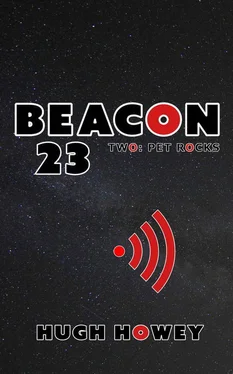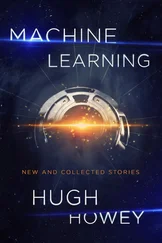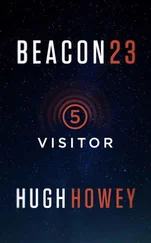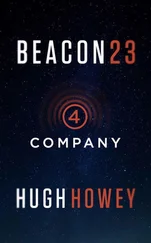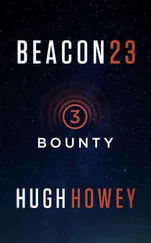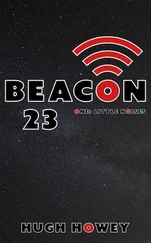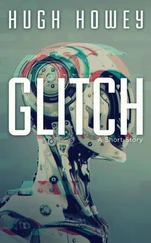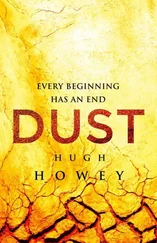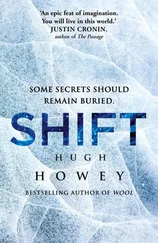Hugh Howey - Pet Rocks
Здесь есть возможность читать онлайн «Hugh Howey - Pet Rocks» весь текст электронной книги совершенно бесплатно (целиком полную версию без сокращений). В некоторых случаях можно слушать аудио, скачать через торрент в формате fb2 и присутствует краткое содержание. Год выпуска: 2015, Издательство: Broad Reach Publishing, Жанр: sf_space_opera, short_story, на английском языке. Описание произведения, (предисловие) а так же отзывы посетителей доступны на портале библиотеки ЛибКат.
- Название:Pet Rocks
- Автор:
- Издательство:Broad Reach Publishing
- Жанр:
- Год:2015
- ISBN:нет данных
- Рейтинг книги:5 / 5. Голосов: 1
-
Избранное:Добавить в избранное
- Отзывы:
-
Ваша оценка:
- 100
- 1
- 2
- 3
- 4
- 5
Pet Rocks: краткое содержание, описание и аннотация
Предлагаем к чтению аннотацию, описание, краткое содержание или предисловие (зависит от того, что написал сам автор книги «Pet Rocks»). Если вы не нашли необходимую информацию о книге — напишите в комментариях, мы постараемся отыскать её.
Pet Rocks — читать онлайн бесплатно полную книгу (весь текст) целиком
Ниже представлен текст книги, разбитый по страницам. Система сохранения места последней прочитанной страницы, позволяет с удобством читать онлайн бесплатно книгу «Pet Rocks», без необходимости каждый раз заново искать на чём Вы остановились. Поставьте закладку, и сможете в любой момент перейти на страницу, на которой закончили чтение.
Интервал:
Закладка:
Beacon 23
PART TWO: PET ROCKS
by Hugh Howey
• 1 •
When a trans-orbital cargo ship traveling twenty times the speed of light bumps into large, stationary rocks, it makes quite a scene.
I can attest.
I am witness.
According to the labcoats at NASA, I might be the only soul to see such a spectacle with his own eyes and live to tell the tale. Besides the asshole pirates who caused the ruckus in the first place, I have to remind them.
Up in the business end of my beacon, where the gravity wave broadcaster helps ships avoid my asteroid field, there’s a photo of an old man standing in front of a lighthouse as it gets battered by heavy seas. Some former beacon resident must’ve seen an affinity between our two occupations. And now I find myself wondering if any of those old lighthouse keepers felt this empty, gnawing, hungry, depressed sensation after a ship was lost on their rocks. I wonder if they felt this helplessness, this dread, this sense of duty derelictioned—if that’s even a word. Did they watch for weeks as planks of wood and tangles of rope washed up on their shores? Did they feel as though they didn’t do quite enough? That the blood out there was on their hands?
I hope not. I wouldn’t wish this on anyone, much as I crave the company, much as I wish I didn’t feel so alone. It’s a selfish craving, desiring a partner in misery. The brotherhood of war was a lot like this. You didn’t want your squadmates to be there, suffering with you, but you couldn’t have made it through without them. You wanted them home as badly as they wanted to be home, but only if you all got to go at once. I’m pretty sure every one of us was thinking: Don’t leave a man behind — especially not me .
It’s been seven days since the wreck, and I haven’t slept much. I have no appetite. I keep telling myself it was only six dead, which would’ve been a great day along the front, but maybe it’s the near-miss of the passenger liner that keeps me up at night and has me skipping my morning bowl of protein mix. Even though the passenger ship passed by without incident, I can somehow see five thousand bodies tumbling out there among the rocks. I can hear their families weeping. None of them know how close they came. But I do. I get the shakes when I think about it. I concentrate instead on the four men and two women who did die out there, and I run everything over and over in my head, wondering what I could’ve done differently.
NASA had some choice words, of course. No more trading with ships passing through the system. I am officially on quarantine. Protocols across all the beacons are being affected because of my dumb ass. I remember a morning in flight school when the entire platoon had to run thirty klicks because of some wisecrack I made. I’m still making trouble for everyone else. Before I can stop it, my mind jerks back to my last day in the war, with my squad dead, three platoons hunkered down, oblivion approaching…
I clamp down on those memories. I embrace fresher torments. But my shrink warned me about this, how anger and depression get misassigned, and how if I don’t work through shit it’ll keep resurfacing in ways I don’t expect. Maybe it’s not the six dead or the five thousand saved that have me feeling this way. And maybe taking this job was the worst way possible to wrestle down my demons. They’ve got me trapped here, in my beacon. And vastly outnumbered.
If my private torments aren’t going away anytime soon, at least the cosmos has a short memory. The armada of news ships with their channel stations painted across their hulls has come and gone. As well as the private yacht rubberneckers and souvenir-seekers and scavengers. The busted cargo ship was like a spilled can of soda. A swarm of ants and bees came, and now are gone.
NASA, bless them, can only concentrate on the fact that my rebooting the beacon erased the last few hours of recordings from the scanners, and so we have no vid of the disaster. They say I missed a prime opportunity to record just what happens when a ship collides with a meteor field in hyperspace. I might’ve saved five thousand lives, but the way my bosses are talking, it was too cheap an exchange for what might’ve been learned.
Funny, I thought I was getting away from such hard calculations when I left the army. I suppose half a klick won on some alien rock has a price about the same as a paragraph gained in the storehouse of human knowledge. Everyone’s gonna die anyway, right? Well, someone should explain to these clowns that borders aren’t forever either, and neither are their theories. It all goes. They can damn me all they like for choosing to save lives. Guess we each have our own stupid priorities.
I sit with my back to the restored GWB to calm these thoughts. Whatever the dome does to the local gravity field to warn ships of danger, it does something just as useful to my head. I worry less when I’m up here. It’s like two fingers of whiskey that keeps tumbling through my veins, never stopping, never subsiding, never becoming too much.
Outside the porthole in front of me, a massive field of debris catches the starlight. The only NASA scanner that remembers what happened is my imperfect and bewildered brain, and it replays the impact in a loop. I see a flash of light, asteroids as big as moons bursting into clouds of bright powder, cargo that survived the impact scattering, the rear half of the massive ship popping out of hyperspace and exploding into countless pieces, and a vortex of bouncing mass and momentum and splintering steel and rock.
I described it all to the labcoats as best I could. I nodded at the animations they came up with. I watched them lumber around my beacon, going through all the panels and crannies, sniffing out the sabotaging little vermin that tormented me with their squeaks and clicks, everyone lecturing me on the new quarantine protocols. As shrapnel and rocks clinked and clanged off the beacon like hailstones, and men smarter than me frowned at whatever they were calculating in their noggins, I wondered if they’d send me home like the army had. But they packed up and went zipping back to Houston, leaving me in this funk.
The debris has kept on striking the beacon since they left, though the patter is becoming more sparse. Ignoring the labcoats’ reassurances, I’ve taken to sleeping in the lifeboat, just in case. I retrieved the walk suit from the airlock—the thing smelling of a decade of sweat and storage—and I wear it all the time now. I sleep with my helmet right in front of me. The first two nights, I slept with the helmet on, the visor closed, my exhalations fogging my vision.
The sight of myself in the mirrored visor isn’t pretty, I have to admit. I look like a dead man. Gaunt. Unshaven. Older than my thirty-five years. But I keep the image of myself close at hand, my helmet within reach, just like in my army days. I long ago learned to embrace the illusion that a thin veneer over my skull might save me. No rock to hide under, so this will have to do.
In the middle of the night last night, a whizzing hunk-of-something punched a neat hole in the upper solar array, waking me up and sending me scrambling for a damage assessment. An awful clatter followed as a small storm of debris peppered the hull—but the beacon never lost integrity. I’ve been keeping an eye on the atmo gauges ever since. The alarms should sound if something goes amiss, but I keep wondering what happens if the alarms are the first things damaged? Or if I’d even hear the alarms in the lifeboat at night. This is like living in the trenches again, just a different kind of bombardment. But there’s that nervous, anxious energy every second, that knowledge that your life could end before you have enough time to call out for your momma. Just a whistle, and then a cloud of red. Or in this case, a sharp bang, a hiss of vacuum equalizing, and then a cold, asphyxiating death.
Читать дальшеИнтервал:
Закладка:
Похожие книги на «Pet Rocks»
Представляем Вашему вниманию похожие книги на «Pet Rocks» списком для выбора. Мы отобрали схожую по названию и смыслу литературу в надежде предоставить читателям больше вариантов отыскать новые, интересные, ещё непрочитанные произведения.
Обсуждение, отзывы о книге «Pet Rocks» и просто собственные мнения читателей. Оставьте ваши комментарии, напишите, что Вы думаете о произведении, его смысле или главных героях. Укажите что конкретно понравилось, а что нет, и почему Вы так считаете.
